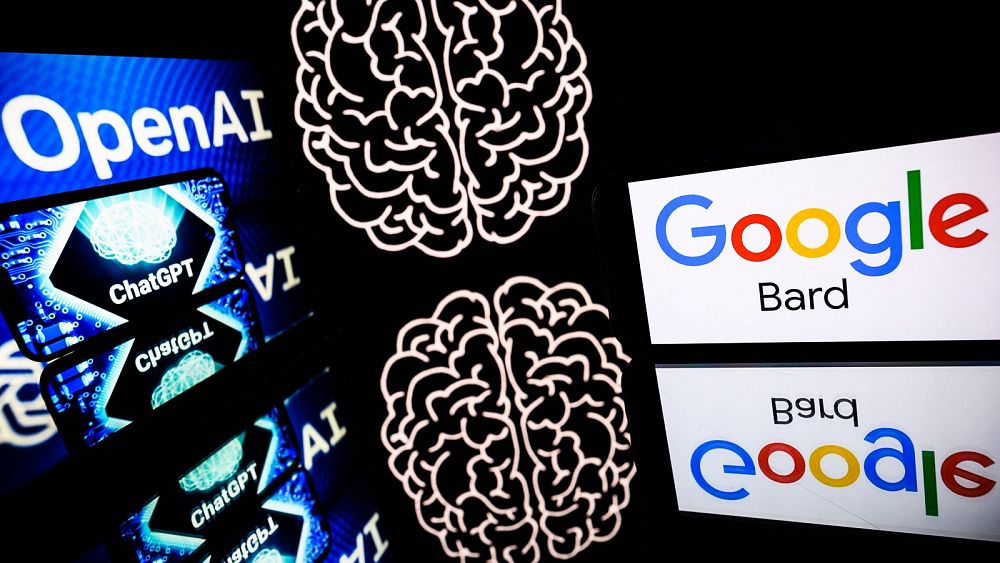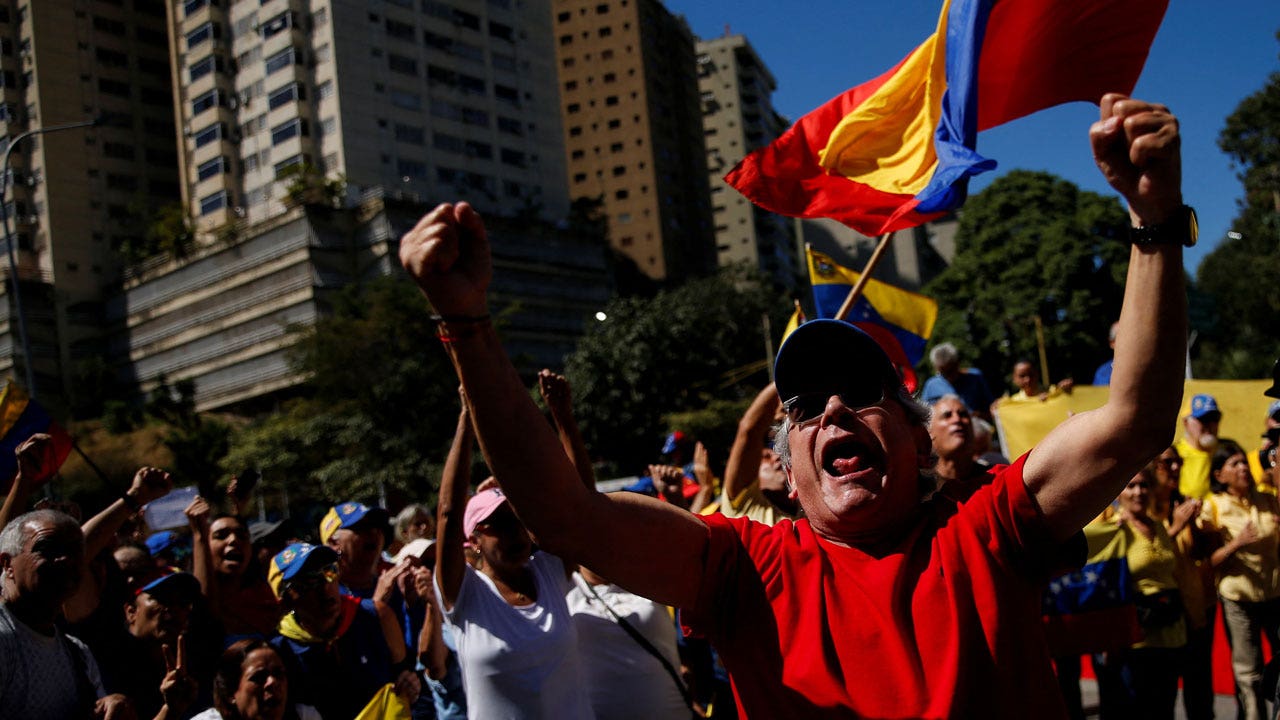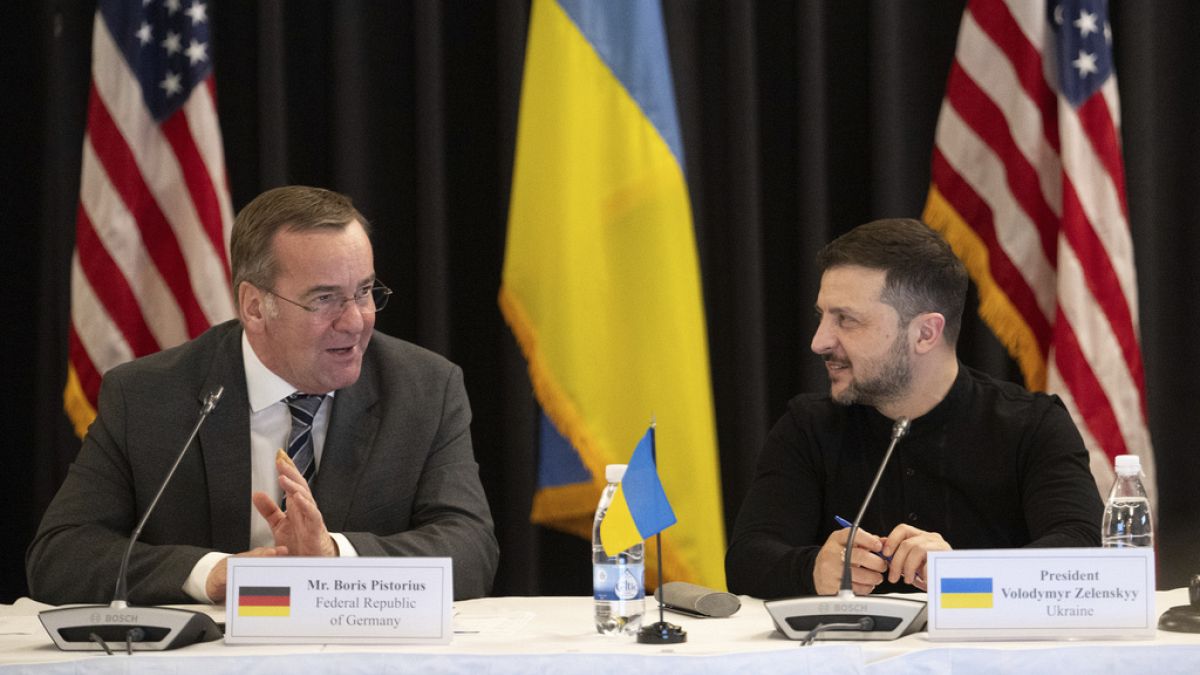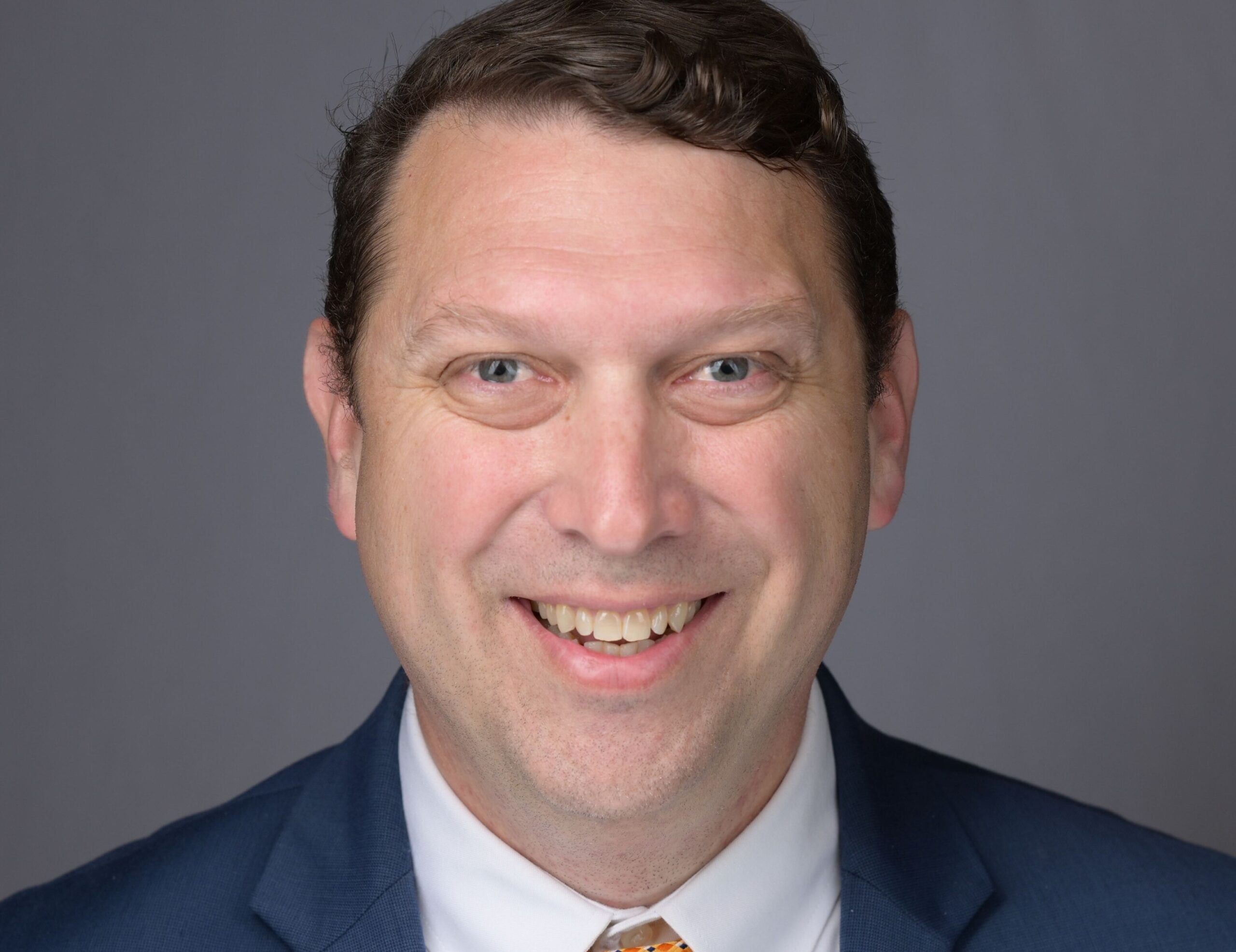World
EU set to roll out world’s first AI regulation after 35-hour talks

Member states and the European Parliament have reached a preliminary deal on the Artificial Intelligence Act, the world’s first attempt to regulate the fast-evolving technology in a comprehensive, ethics-based manner.
The agreement was struck at the political level on Friday night after talks that occupied the entire day and followed an unsuccessful marathon between Wednesday and Thursday afternoon. In total, the entire push took more than 35 hours.
The breakthrough came amid aggressive lobbying from tech companies of all sizes, stark warnings from civil society and intense media scrutiny as the legislation from Brussels could very well influence similar regulatory efforts across the world.
“Historic! The EU becomes the very first continent to set clear rules for the use of AI,” said Thierry Breton, the European Commissioner for the internal market who took part in the debate. “The AI Act is much more than a rulebook – it’s a launchpad for EU startups and researchers to lead the global AI race.”
The negotiations were a hard-fought back-and-forth between governments and lawmakers over a string of highly complex and technical issues.
Having sealed on Thursday a tentative compromise to rein in the foundation models that power chatbots like OpenAI’s ChatGPT, Friday’s talks had a strong focus on the use of real-time biometrics, including facial recognition, in public spaces.
At the core of the debate was the question of whether state authorities should be allowed to deploy AI-powered biometric systems that can identify and categorise people based on sensitive characteristics such as gender, race, ethnicity, religion and political affiliation, as well as systems of emotion recognition and predictive policy.
In their joint mandate, MEPs said these practices were “intrusive and discriminatory” and therefore should be prohibited across EU territory. Member states, though, had quite a different opinion and argued exceptions for law enforcement were necessary to track down criminals and thwart threats against national security. France approved earlier this year legislation to enable the use of biometric surveillance during the 2024 Paris Olympics and Paralympics, a first for an EU country.
The clash between national security and fundamental rights absorbed most of the energy on Friday. Spain, the current holder of the Council’s rotating presidency, had the hard task of representing the 27 member states and keeping a united front.
Talks were interrupted by a protracted recess where lawmakers discussed among themselves the demands made by the Spanish presidency. Meanwhile, scholars and activists took to social media to urge MEPs to resist the exemptions for law enforcement.
In the end, the Parliament relented and signed up to a series of “strict conditions” that will allow authorities to use real-time biometrics to search for victims of abduction, trafficking and sexual exploitation; prevent terrorist threats; and locate people suspected of having committed serious crimes, such as terrorism, murder, rape and armed robbery.
By contrast, biometric categorisation based on sensitive characteristic, social scoring, predictive policing, the exploitation of vulnerabilities and emotion recognition in the workplace and educational institutions will be prohibited.
“We fought hard for the ban on biometric identification,” said Brando Benifei, a socialist MEP who served as co-rapporteur. “It was important to bring all these pieces together.”
“All these things are a very strong regime that say what kind of uses of AI we don’t want in our Union and in our market,” said Dragoș Tudorache, the other co-rapporteur.
Given the complexity of the issue at hand, the compromise that emerged from the drawn-out talks is likely to require further fine-tuning in the coming days. Carme Artigas, Spain’s secretary of state for digitalisation and AI, insistedthat “every article” had been agreed-upon, without leaving any “loopholes” to circumvent respect of human rights.
Once the legal text, which covers hundreds of pages in articles and annexes, is rewritten, it will be sent to the European Parliament for a new vote in the hemicycle, followed by the green light by the countries in the Council.
“We’re hopeful that all (member states) will confirm” the compromise, Artigas said, when asked about the concerns raised by Germany and France.
The final votes are expected to take place in early 2024. The law will then have a gradual period before it becomes fully applicable.
An ever-evolving technology
First presented in April 2021, the AI Act is a ground-breaking attempt to ensure the most radically transformative technology of the 21st century is developed in a human-centric, ethically responsible manner that prevents and contains its most harmful consequences.
The Act is essentially a product safety regulation that imposes a staggered set of rules that companies need to follow before offering their services to consumers anywhere across the bloc’s single market.
The law proposes a pyramid-like structure that splits AI-powered products into four main categories according to the potential risk they pose to the safety of citizens and their fundamental rights: minimal, limited, high and unacceptable.
Those that fall under the minimal risk category will be freed from additional rules, while those labelled as limited risk will have to follow basic transparency obligations.
The systems considered high risk will be subject to stringent rules that will apply before they enter the EU market and throughout their lifetime, including substantial updates. This group will encompass applications that have a direct and potentially life-changing impact on private citizens, such as CV-sorting software for job interviews, robot-assisted surgery and exam-scoring programmes in universities.
High-risk AI products will have to undergo a conformity assessment, be registered in an EU database, sign a declaration of conformity and carry the CE marking – all before they get to consumers. Once they become available, they will be under the oversight of national authorities, aided by a dedicate AI office inside the European Commission.
AI systems with an unacceptable risk for society, including social-scoring to control citizens and applications that exploit socio-economic vulnerabilities, will be outright banned across all EU territory.
Under the preliminary deal, companies that violate the rules will face multi-million fines of up €35 million or 7% of global turnover.
Although this risk-based approach was well received back in 2021, it came under extraordinary pressure in late 2022, when OpenAI launched ChatGPT and unleashed a global furore over chatbots. ChatGPT was soon followed by Google’s Bard, Microsoft’s Bing Chat and, most recently, Amazon’s Q.
Chatbots are powered by foundation models, which are trained with vast troves of data, such as text, images, music, speech and code, to fulfil a wide and fluid set of tasks that can change over time, rather than having a specific, unmodifiable purpose.
The Commission’s original proposal did not introduce any provisions for foundation models, forcing lawmakers to add an entirely new article with an extensive list of obligations to ensure these systems respect fundamental rights, are energy efficient and comply with transparency requirements by disclosing their content is AI-generated.
This push from Parliament was met with scepticism from member states, who tend to prefer a soft-touch approach to law-making. Germany, France and Italy, the bloc’s three biggest economies, came forward with a counter-proposal that favoured “mandatory self-regulation through codes of conduct” for foundation models. The move sparked an angry reaction from lawmakers and threatened to derail the legislative process.
But the daunting prospect of thrusting the landmark law into limbo in the lead-up to next year’s European elections acted as a motivation to bridge the gaps and strike a preliminary deal, which now foresees transparency requirements for chatbots to ensure users are aware they interact with an AI-powered system.
“The AI Act is a global first,” said Ursula von der Leyen, the president of the European Commission. “A unique legal framework for the development of AI you can trust. And for the safety and fundamental rights of people and businesses. A commitment we took in our political guidelines – and we delivered.”
This article has been updated with more information about the political deal.

World
As wildfires rage in Los Angeles, Trump doesn't offer much sympathy. He's casting blame.
WASHINGTON (AP) — As cataclysmic wildfires rage across Los Angeles, President-elect Donald Trump hasn’t been offering much sympathy. Instead, he’s claiming he could do a better job managing the crisis, spewing falsehoods and casting blame on the state’s Democratic governor.
Trump has lashed out at his longtime political foe Gov. Gavin Newsom’s forest management policies and falsely claimed the state’s fish conservation efforts are responsible for fire hydrants running dry in urban areas. Referring to the governor by a derisive nickname, Trump said he should resign.
Meanwhile, more than 180,000 people have been under evacuation orders and the fires have consumed more than 45 square miles (116 square kilometers). One that destroyed the neighborhood of Pacific Palisades became the most destructive blaze in Los Angeles history.
Trump v. Newsom: Round 2 was to be expected — the liberal Democrat has long been one of Trump’s biggest foils. But the Western fires are also a sign of something far more grave than a political spat or a fight over fish. Wildfire season is growing ever longer thanks to increasing drought and heat brought on by climate change.
Trump refuses to recognize the environmental dangers, instead blaming increasing natural disasters on his political opponents or on acts of God. He has promised to drill for more oil and cut back on renewable energy.
On Thursday, Trump said on social media that Newsom should “open up the water main” — an overly simplistic solution to a complex problem. “NO MORE EXCUSES FROM THIS INCOMPETENT GOVERNOR,” Trump said, adding, “IT’S ALREADY FAR TOO LATE!”
Standing on the street in a scorched subdivision as a home behind him was engulfed in flames, Newsom responded to the criticism when asked about it by CNN.
“People are literally fleeing. People have lost their lives. Kids lost their schools. Families completely torn asunder. Churches burned down, and this guy wants to politicize it,” Newsom said. “I have a lot of thoughts and I know what I want to say, but I won’t.”
In a post on his Truth Social media network, Trump tried to connect dry hydrants to criticism of the state’s approach to balancing the distribution of water to farms and cities with the need to protect endangered species including the Delta smelt. Trump has sided with farmers over environmentalists in a long-running dispute over California’s scarce water resources. But that debate has nothing to do with the hydrant issue in Los Angeles, driven by an intense demand on a municipal system not designed to battle such blazes.
About 40% of Los Angeles city water comes from state-controlled projects connected to northern California and the state has limited the water it delivers this year. But the southern California reservoirs these canals help feed are at above-average levels for this time of year.
Roughly 20% of hydrants across the city went dry as crews battled blazes, Los Angeles Mayor Karen Bass said. Firefighters in Southern California are accustomed to dealing with the strong Santa Ana winds that blow in the fall and winter, but the hurricane-force gusts earlier in the week took them by surprise. The winds grounded firefighting aircraft that should have been making critical water drops, straining the hydrant system.
“This is unlike anything I’ve seen in my 25 years on the fire department,” Los Angeles Fire Capt. Adam VanGerpen told CBS This Morning.
Janisse Quiñones, head of the Los Angeles Department of Water and Power, said the ferocity of the fire made the demand for water four times greater than “we’ve ever seen in the system.”
Hydrants are designed for fighting fires at one or two houses at a time, not hundreds, Quiñones said, and refilling the tanks also requires asking fire departments to pause firefighting efforts.
President Joe Biden, who was in California for an environmental event that ended up being canceled as the fires raged, appeared with Newsom at a Santa Monica firehouse on Wednesday and quickly issued a major disaster declaration for California, releasing some immediate federal funds.
But any additional federal response will be overseen by Trump, who has a history of withholding or delaying federal aid to punish his political enemies.
In September, during a press conference at his Los Angeles golf course, Trump threatened: “We won’t give him money to put out all his fires. And if we don’t give him the money to put out his fires, he’s got problems.”
Trump’s support in California has increased in recent years, which could further embolden him in his tussles with Democratic leaders there. In 2024, he improved on his vote share in Los Angeles and surrounding areas hit by the fires by 4.68 percentage points. And while he still lost the state overall, he grew his overall margin by 4 points compared to the 2020 election.
As for the impact of the fires on Californians, Trump said areas in Beverly Hills and around it were “being decimated” and that he had “many friends living in those houses.” He framed the losses as a potential hit to the state’s finances.
“The biggest homes, some of the most valuable homes in the world are just destroyed. I don’t even know. You talk about a tax base, if those people leave you’re going to lose half your tax base of California,” Trump said.
___
Associated Press Writer Maya Sweedler contributed to this report.
World
Thousands of Venezuelan opposition supporters take to the streets ahead of Maduro's third inauguration

- Venezuelan opposition parties and their supporters protested around the country on Thursday in a last-minute effort to put pressure on President Nicolás Maduro, one day before he is due to be sworn in for his third six-year term.
- Maria Corina Machado, Venezuela’s most popular opposition leader, made an appearance for the first time since August when she went into hiding at an unknown location.
- Venezuelan President Nicolás Maduro, 62, has been in power since 2013.
Venezuelan opposition parties and their supporters – including leader Maria Corina Machado, who had been in hiding – protested around the country on Thursday in an eleventh-hour effort to put pressure on President Nicolás Maduro, one day before he is due to be sworn in for his third six-year term.
The opposition and the ruling party are locked in an ongoing dispute over last year’s presidential election, which they both claim to have won.
The country’s electoral authority and top court say Maduro, whose time in office has been marked by a deep economic and social crisis, won the July vote, though they have never published detailed tallies.
VENEZUELAN OPPOSITION LEADER MARÍA MACHADO HAS URGENT MESSAGE FOR PRESIDENT-ELECT DONALD TRUMP
The government, which has accused the opposition of fomenting fascist plots against it, said it will arrest opposition leader Edmundo Gonzalez should he return to the country and has detained prominent opposition members and activists in the lead-up to the inauguration.
The opposition says Gonzalez, 75, won in a landslide. It has published its own vote tallies as evidence, winning support from governments around the world, including the United States, which consider Gonzalez the president-elect.
Machado, who is the country’s most popular opposition leader but who was barred from running in 2024, joined a protest in Chacao in eastern Caracas at around 2:20 p.m. local time (18:20 GMT), dressed in a white shirt and blue jeans and waving a Venezuelan flag from the top of a truck.
A supporter of Venezuela’s opposition reacts while gathering with fellow supporters ahead of President Nicolas Maduro’s inauguration for a third term, in Caracas, Venezuela, on Jan. 9, 2025. (Reuters/Leonardo Fernandez Viloria)
“They lost the streets, which are ours, they are barricaded in Miraflores (presidential palace),” Machado told the crowd. “From today we are in a new phase.”
Her appearance marked her first public outing since August when she went into hiding at an unknown location.
Machado, 57, urged protesters to peacefully flood the streets and repeatedly asked members of the police and military – who guarded polling stations during the election – to back Gonzalez’s victory.
“I’m not afraid, I lost my fear a long time ago,” said 70-year-old Neglis Payares, a retired central bank worker, as she gathered with other opposition supporters in western Caracas in the morning.
“We don’t know how many of them have their heart on our side,” she added, gesturing at security forces who had gathered near the protest.
2 AMERICANS ARRESTED IN VENEZUELA ON EVE OF MADURO INAUGURATION OVER ‘TERRORISM’ CLAIMS
Reuters witnesses estimated some 7,000 people had gathered in Caracas by around 2:20 p.m. local time. In the days after the election, thousands also took to the streets.
Maduro, 62, has been in power since 2013. He has the vociferous support of leaders in the armed forces and the intelligence services, which are run by close allies of powerful Interior Minister Diosdado Cabello.
“I am convinced nothing will happen,” Cabello said on state television on Monday. “But that doesn’t mean we will lower our guard.”
The military’s financial interests make loyalty shifts unlikely, said BancTrust, a London investment bank, in a note. “A limited military rebellion would entail significant risks for those involved, thus diminishing incentives to participate,” it wrote.
‘WE HAVE NO WORK’
Security forces set up checkpoints around the country.
In the western oil city of Maracaibo, an opposition protest of dozens of people was quickly dispersed by motorcycle-mounted security forces by late morning. In central Valencia, protesters gathered at another location after initially being met with tear gas.
Opposition supporters also gathered in San Cristobal, near the border with Colombia, in the western city of Barquisimeto and in eastern Puerto Ordaz.
“I’m here because we need to get rid of this government. We have no money, we have no work,” 62-year-old housewife Roisa Gomez said at a protest in the central city of Maracay. “I’m fighting for my vote, which I cast for Edmundo Gonzalez. They cannot steal the election.”
Soon afterward, security forces used tear gas to disperse the Maracay protesters.
Many of the demonstrators were of retirement age and said they wanted change so their migrant children and grandchildren would return to the country. More than 7 million Venezuelans live abroad.
The ruling party was holding rival marches nationwide, images of which were broadcast on state television.
“We’ve come out to show that there is a democracy. On this side are the patriots who will be sworn in with Nicolas (Maduro), on the other side are fascists who want (foreign) intervention, war, to sell their country,” said 50-year-old Caracas motorcycle taxi driver Manual Rincon.
Gonzalez, who has been on a tour of the Americas this week and met with U.S. President Joe Biden and President-elect Donald Trump’s national security advisor, has repeatedly pledged to return to Venezuela but given no details about how.
An arrest warrant was issued for Gonzalez for alleged conspiracy, prompting his September flight to Spain.
Machado is being investigated by the attorney general in at least two cases, but no warrant for her has been made public.
The government has detained several high-profile politicians and activists, including a former presidential candidate. This week, the attorney general’s office said it had freed more than 1,500 of the 2,000 people, including teenagers, detained during post-election protests.
Venezuelans living abroad also held protests, including in Madrid, where Gonzalez’s daughter Carolina Gonzalez spoke to hundreds of demonstrators.
“My dad sends a hug to all of you, glory to the brave people of Venezuela,” she said, her voice breaking.
World
Ramstein: Germany pledges tanks, missiles, and air defence for Ukraine

The German Defence Minister has pledged additional military aid to Ukraine at today’s meeting of the Ukraine Defence Contact Group in Ramstein.
At today’s Ukraine Defence Contact Group meeting in Ramstein, German Defence Minister Boris Pistorius has confirmed that Germany will continue its support for Ukraine even after the federal elections in February.
“Ukraine can count on Germany, regardless of the outcome of the election on February 23”, Pistorius said.
Speaking at a press conference after the meeting, Pistorius highlighted Germany’s contribution to protecting the largest logistics hub supporting Ukraine. “In the coming weeks, we will deploy two Patriot missile units and a total of 200 soldiers to Poland”, he announced. The Bundeswehr soldiers are expected to remain in Poland for six months as part of a NATO mission.
While Pistorius did not unveil a large-scale aid package for Ukraine, he pledged to provide the Ukrainian armed forces with three additional IRIS-T SLM and SLS air defence systems, along with 13 more Gepard tanks.
He also intends to supply additional missiles for the IRIS-T systems in the near future. These missiles are part of ongoing production and were originally allocated for the German Bundeswehr.
Contact Group to continue under Trump Presidency
Another key topic at the meeting was the impending Trump presidency in the United States. Pistorius emphasised the importance of continuing the Ukraine Contact Group meetings in Ramstein under Trump’s leadership.
But whether these meetings will actually persist, remains uncertain. However, should the new U.S. administration choose to discontinue the format, “it will need to continue in another form”, Pistorius asserted.
Zelenskyy places hope in Trump Presidency
Ukrainian President Volodymyr Zelenskyy has expressed his expectations for the incoming U.S. President, who is set to take office on January 20.
In light of the leadership transition, Zelenskyy also called for strengthened cooperation. “With Trump’s inauguration on January 20, we enter a period where we must work more closely together and achieve better results as a team”, he said during today’s Ukraine Contact Group meeting.
Speaking on a podcast with Russian-American host Lex Fridman earlier this week, Zelenskyy described Trump as a pivotal figure in the effort to stop Putin.
Tymofiy Mylovanov, former Ukrainian Minister of Economic Development and president of the Kyiv School of Economics, told Euronews he believed there will be a serious effort by the Trump administration to get a peace deal without selling out Ukraine. “The aid will continue as a part of strengthening leverage over Putin and enforcement of the deal”, he predicted.
According to Mylovanov, the EU and Germany will at the same time have to step up after Trump assumes office: “Trump has made it clear that Ukraine is the EU’s problem and Germany is the key power in the EU no matter how the local politics looks at the moment.”
-

 Business1 week ago
Business1 week agoThese are the top 7 issues facing the struggling restaurant industry in 2025
-

 Culture1 week ago
Culture1 week agoThe 25 worst losses in college football history, including Baylor’s 2024 entry at Colorado
-

 Sports1 week ago
Sports1 week agoThe top out-of-contract players available as free transfers: Kimmich, De Bruyne, Van Dijk…
-

 Politics7 days ago
Politics7 days agoNew Orleans attacker had 'remote detonator' for explosives in French Quarter, Biden says
-

 Politics7 days ago
Politics7 days agoCarter's judicial picks reshaped the federal bench across the country
-

 Politics5 days ago
Politics5 days agoWho Are the Recipients of the Presidential Medal of Freedom?
-

 Health4 days ago
Health4 days agoOzempic ‘microdosing’ is the new weight-loss trend: Should you try it?
-

 World1 week ago
World1 week agoIvory Coast says French troops to leave country after decades
















